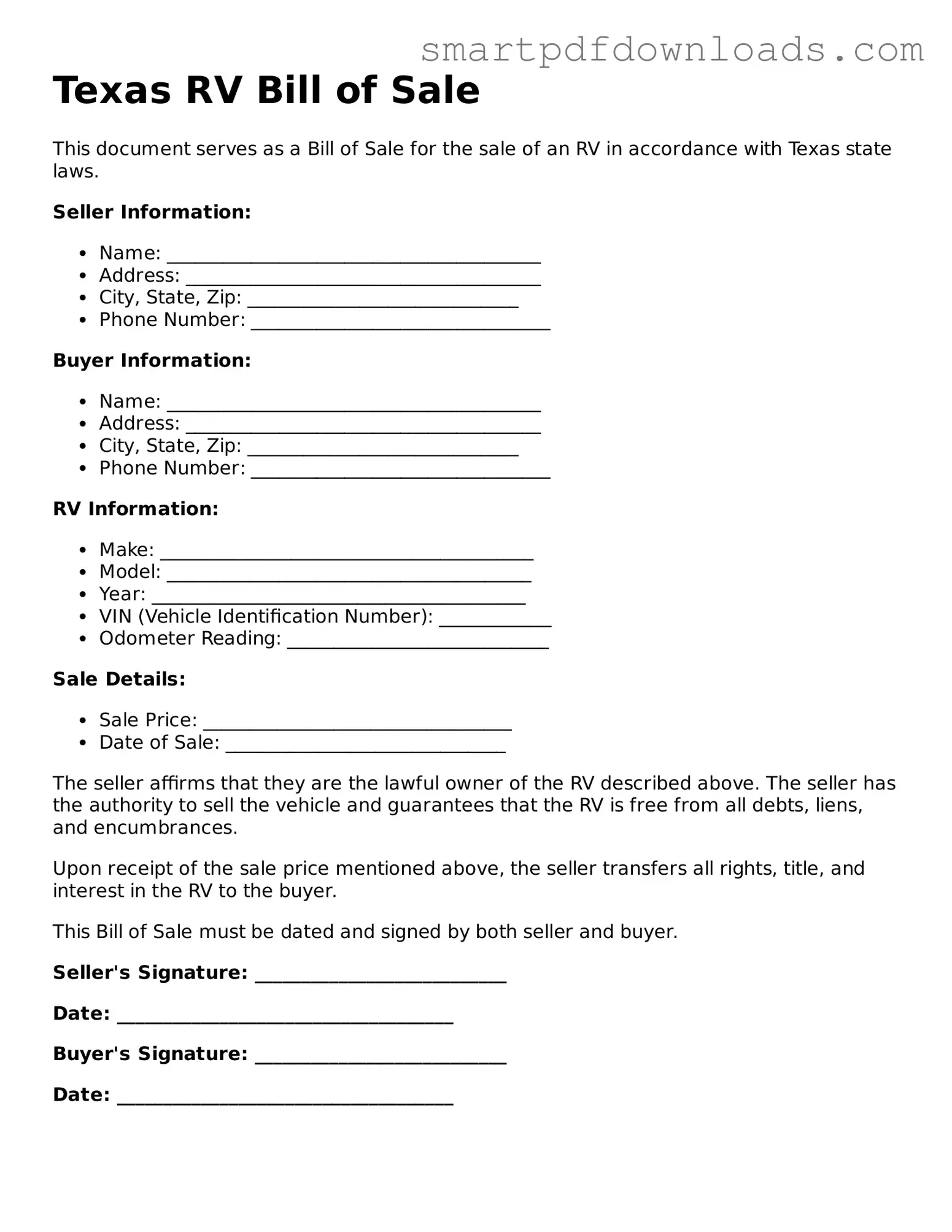Legal RV Bill of Sale Form for the State of Texas
The Texas RV Bill of Sale form is a legal document that records the sale of a recreational vehicle in Texas. This form serves as proof of ownership transfer between the seller and the buyer. Understanding its components is essential for ensuring a smooth transaction.
Edit RV Bill of Sale Online

Legal RV Bill of Sale Form for the State of Texas
Edit RV Bill of Sale Online

Edit RV Bill of Sale Online
or
⇓ PDF File
Finish the form and move on
Edit RV Bill of Sale online fast, without printing.